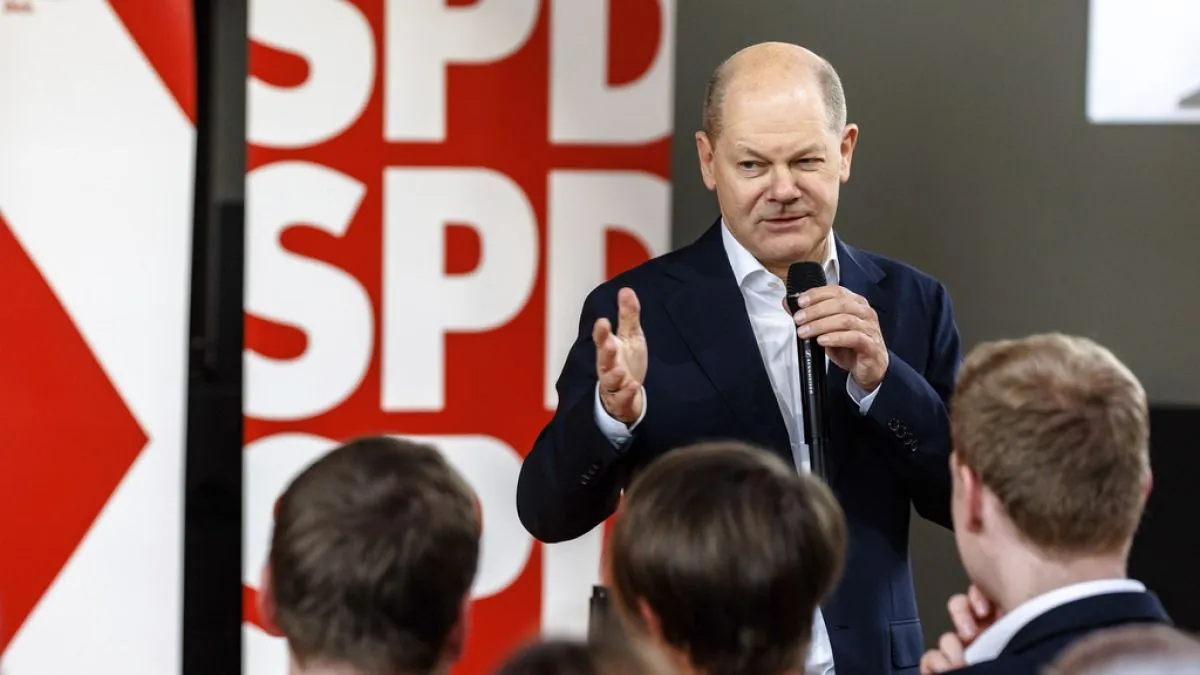In a recent regional election in Brandenburg, Chancellor Olaf Scholz's Social Democratic Party (SPD) secured a narrow victory over the far-right Alternative for Germany (AfD). This outcome has sparked discussions about the party's prospects in the upcoming national election scheduled for September 2025.
The SPD's success in Brandenburg, which took place on September 22, 2024, was largely attributed to the popularity of Governor Dietmar Woidke. Notably, Woidke distanced his campaign from the federal government and Chancellor Scholz, who has been facing challenges in national polls.
Following this result, SPD co-leader Lars Klingbeil addressed questions about Scholz's candidacy for the 2025 national election. Klingbeil stated:
"I as party leader want to win the national parliamentary election — that is 12 months away and we will fight together. Yesterday's election gives us courage that we can do it, but of course I also know that the challenges and the questions we have to deal with at national level are far from dealt with as a result of yesterday evening."
[[Lars Klingbeil, SPD co-leader]]
Klingbeil emphasized that there is "absolutely no wobbling" regarding Scholz's candidacy within the party leadership, parliamentary group, state governors, and ministers.
The SPD, Germany's oldest existing political party founded in 1863, has faced recent electoral challenges. The party performed poorly in the European Parliament election in June 2024 and in two state elections in eastern Germany on September 1, 2024. Despite these setbacks, the Brandenburg victory has provided a morale boost for the party.
Germany's political landscape has evolved significantly since reunification, with eastern states often showing different voting patterns compared to their western counterparts. The AfD, founded in 2013, has gained substantial support in eastern German states, highlighting the region's distinct political dynamics.
The current governing coalition, consisting of the SPD, Greens, and Free Democratic Party (FDP), has struggled with popularity. This coalition, formed after the 2021 federal election, marked the first time Germany has been led by a three-party alliance at the federal level.
In contrast to the SPD's ongoing discussions, the center-right Union bloc, currently leading in national polls, has already selected Friedrich Merz as their chancellor candidate for the 2025 election. Merz, who became leader of the Christian Democratic Union (CDU) in January 2022, represents the main opposition to Scholz's government.
The upcoming 2025 federal election will be significant as it will be the first since 2005 not to feature Angela Merkel as a candidate. This election will determine the composition of the Bundestag, which in turn will choose the next chancellor.
As Germany approaches this crucial electoral period, the SPD faces the challenge of translating regional successes into national support. The party's ability to address pressing issues and present a unified front will be critical in determining its performance in the 2025 election.
